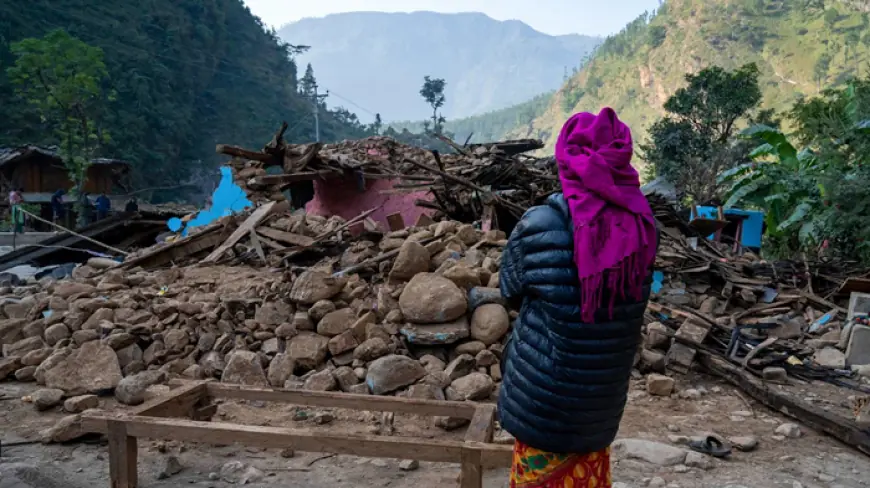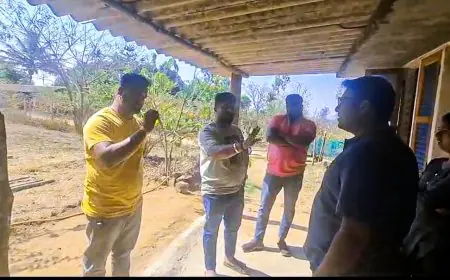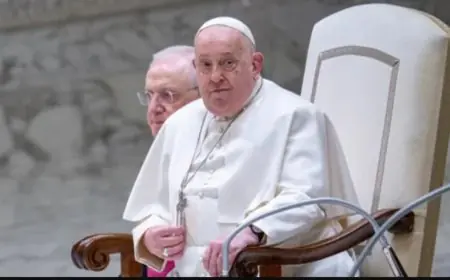Nepal Earthquake Destroys Rural Churches, with Believers Pleading for Immediate Relief
More than 300 Christian families have been affected, says a local pastor.

Nepali Christians are mourning the loss of many of their own after a series of devastating earthquakes in early November.
On Friday, November 3, a 5.6-magnitude earthquake rocked the mountainous Nepali villages of Jajarkot and Rukum West just before midnight, burying people under layers of rubble as they slept. A subsequent earthquake occurred on Monday, November 6, this time measuring 5.2 magnitude.
Many rural churches planted in the districts of West Rukum, Jajarkot, and Kalikot were “flattened,” Hanok Tamang, chairman of the National Churches Fellowship of Nepal, told CT. “It is true [that] many pastors, leaders, and Christians have died.”
Nepal’s current population is 31 million and is divided into seven states and 77 districts. The earthquake-hit areas are located in the midwestern region of the country.
The overall estimated death toll is more than 150 people so far, including more than 80 children, according to the non-governmental organization Save The Children. Villagers have taken to sleeping outdoors in freezing conditions for fear of continuing aftershocks, but also because their homes have been destroyed.
The 2023 earthquakes are the “deadliest” occurrence since the devastating 2015 quake near the city of Kathmandu when believers were attending church on a Saturday, as Sunday is a work day. “Many Christians were buried while they were worshiping on Sabbath and died,” the president of the Seventh-day Adventist Church in Nepal, Umesh Pokharel, told Adventist Review at the time.
Nepal’s Christians make up between 1 to 3 percent of the population, and Protestants were disproportionately affected in the 2015 disaster, said one Catholic leader.
Preliminary reports from Nepalese Christian leaders reveal that believers and churches have encountered significant losses post-earthquake. This may place an added strain on the Nepali church, which saw more than 130 pastors perish during the COVID-19 pandemic.
“Some of our church family members died. Houses are broken and children died because of [the] earthquake,” said a pastor named Samjay.
“Pastor Judha lost five family members … His daughter and four grandchildren lost their lives in the earthquake,” said Tanka, a Christian in western Nepal working with interdenominational aid agency Barnabas Aid.
Three churches affiliated with US-based global missions agency GFA World were “badly affected,” and three church members of one village were killed. Some members of Believers Eastern Church also lost their lives.
More than 40 believers are injured and 13 church buildings have collapsed or been damaged, according to estimates from B. P. Khanal, Nepal’s coordinator of the International Panel of Parliamentarians for Freedom of Religion or Belief.
But other church leaders think that the extent of damage and suffering is far greater. “More than 300 Christian families are affected out of 6,000 to 7,000 households that are affected in total,” said Mukunda Sharma, senior pastor of Bethel Assembly Church, to CT.
Relief aid has been trickling in as the villages are in remote and often hard-to-access locations. But Christians have mobilized efforts to help those affected by the quakes.
A team from Believers Eastern Church went to one village and distributed blankets and tarpaulins for makeshift tents, as well as essential food items like sacks of rice and noodles. Church volunteers from GFA World rode into villages on motorcycles to distribute food. Catholic charity Caritas Nepal has also begun distributing blankets, clothes, tents, and tarpaulins to families.
But more aid is desperately needed, says Sharma, who has since traveled to the disaster-hit area to help support rescue efforts. “Nobody is helping. People do not have money to help. Churches here do not have money to help,” he said.
Government relief does not go directly to the victims but is issued to respective municipalities, Sharma explained.
“The difficulty is that the Christians are excluded [from receiving aid]. If we have some funding and response from people from the global world, the Christian societies will take proper permission and distribute [it] to the Christians who are affected, but for now we have not received help from anywhere.”
“Keep Nepal in the radar of your intercession collectively,” urged Tamang.
The deaths of Nepali Christians may generate renewed attention on the issue of burial. In the majority-Hindu country, most people cremate their dead. Believers are often unable to bury their loved ones, whether due to the lack of public cemeteries available or because of government-issued bans.
Without the opportunity for a burial, a funeral may often not take place. Most evangelicals in Nepal have been forced to cremate their dead—what Hindus practice—or travel to other parts of the country, and even to India, to bury their loved ones.
As believers try to rebuild their lives and places of worship in the aftermath of the earthquakes, they do so amid increasing persecution against Christians in Nepal.
At least seven attacks took place across the country between August and September this year, according to an International Christian Concern report. People broke windows in churches, and members of one community in the southern Lumbini province assaulted two pastors on the street.
Kechav Archarya, who pastors Abundant Harvest Church in Pokhara, Nepal, was sentenced to one year in prison and issued a fine of 10,000 Nepalese rupees ($75 USD) for proselytizing. An attempt to appeal against this sentence was rejected by Nepal’s supreme court on October 6.
“Pastor Keshav Acharya did not resort to coercion to convert anyone to Christianity,” said Joseph Jansen, chairman of advocacy group Voice for Justice, in an interview with Asia News last year.
“The pastor only exercised his right to freedom of religion and did not commit any offense. It is regrettable that Nepal’s anti-conversion laws are worded and enforced in such a way that they may also be applied as anti-blasphemy measures.”


































